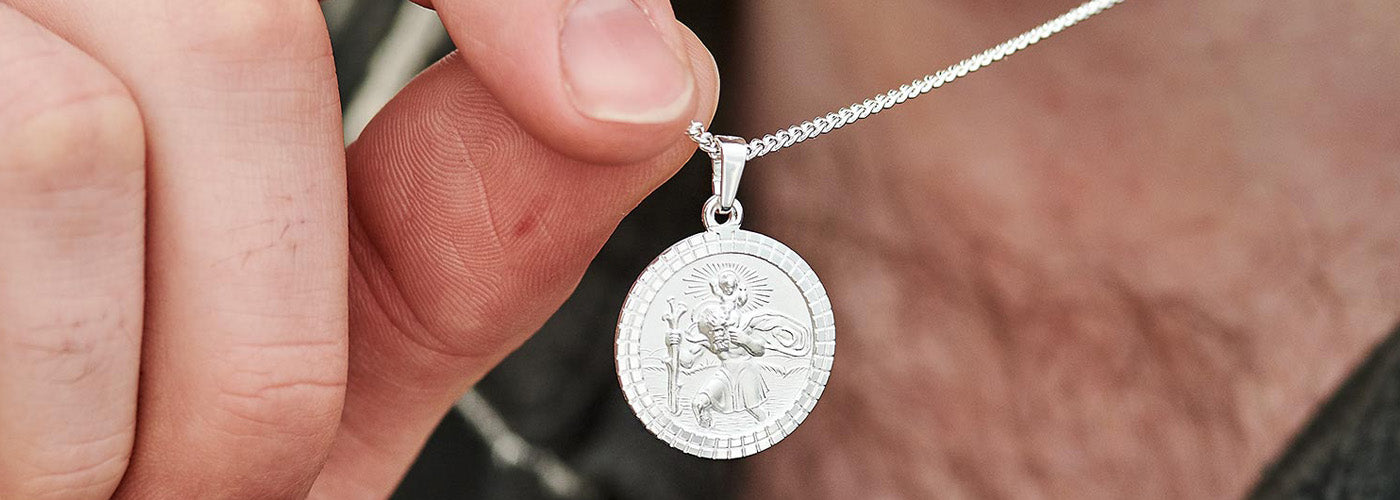Jet lag, that dreaded thing we all wish didn’t exist every time we jump on a plane and traverse time zones!
Jet lag happens to almost everyone when we travel quickly across multiple time zones. It occurs when our body’s usually circadian rhythms are totally out of sync with the country we have just landed in. Our circadian rhythm is our internal clock that our body uses to manage when we fall asleep and when we wake up.
It usually feels like you’re totally spaced out, you don’t know which way is up or down or whether you should be having lunch or be fast asleep and you’ve got no clue what time of day it is! Sound familiar?
The level of severity of jet lag depends on several factors such as which direction you’re travelling in, what the time difference is and how many flights and how long each flight was to get to your destination.
The sting of jet lag can be even more brutal when it is combined with one or two sleepless nights on a plane!
The good news is that it doesn’t take very long for our bodies to naturally sync up with the new time zone we have dropped out of the sky into. However, there are some smart jet lag tips to help you adjust faster. These tips cover everything from preparing before your flight, how to manage jet lag in the air and what you can do when you arrive to adjust faster
Start your next trip on the right foot by implementing as many of these tips to beat jet lag as you can and see if you can notice a difference! First, here is some interesting information about jet lag and why it happens.

What is jet lag and why does it happen?
We can thank our in-built circadian rhythms for jet lag. Within each 24-hour cycle our body temperature, blood pressure, glucose and hormone levels fluctuate. All of this is run by our internal body clock which is directly linked to the light that comes in through our eyes.
The amount and the timing of sunlight we take in from day to day are similar. Our bodies are proficient in adjusting to slight changes that occur daily as the season's change. However, when we jump on a plane and magically cross time zones in a very short period, the change in the light we receive is massive.
When we land in a new country and a new timezone, our body is still wired for the location we arrived from. If you step off the plane into a bright sunny day and at home, your body is expecting the pitch-black darkness of the night, you are going to feel out of sorts!
It is also good to know that jet lag can be more severe when travelling from west to east. This is because this time difference will make it difficult to fall asleep and you may want to sleep all day. It will take longer to adjust to the new time zone when travelling in this direction.
When travelling to the west however, you will find you are super sleepy at night and wake up very early. This can be quite helpful when you’re on a trip and want to get up bright and early to see everything! It doesn’t take as long for the body to adjust to this time difference.

Symptoms of jet lag
Jet lag is very real and almost anyone who has travelled to a faraway land can vouch for it! Some symptoms include:
- Insomnia
- Extreme fatigue
- Loss of appetite
- Headache
- Dizziness
- Mood swings
- Difficulty concentrating
- Constipation and diarrhoea
How long does jet lag take to get over?
Jet lag can feel like you have a strange hangover! As a rule of thumb, each time zone you cross is the number of days it will take you to recover, so the more time zones crossed, the more severe the jet lag will be. If you cross 5 time zones it can take 5 days to feel normal again. However, there are many ways you can hack your internal clock to reduce the symptoms and help your system adjust more quickly.
Jet lag tips for before your flight
1. Adjust your sleep schedule before you leave
One hack to get over jet lag quickly is to do some work to adjust your sleep schedule before you leave. If you gradually shift your sleeping and wake-up times in the direction of the timezone you are travelling to, you will find that once you arrive you will adjust much more smoothly.
You can also help your body adjust by manipulating your light and darkness exposure to match your new time zone before you leave. You can use this app on your phone called Entrain to help you manipulate light exposure and adjust to a new timezone. http://entrain.math.lsa.umich.edu/
This tip will be more helpful and practical if you are only crossing one or two time zones and also your trip is relatively quick and you don’t have time to adjust naturally.

2. Time your flight strategically
If you have the luxury to select a specific time, try and schedule a flight that arrives at your destination close to the morning. Many flights that cross multiple time zones land in the morning for this very reason. It means that when you land, you can have your first full day out and about and hopefully fall dead asleep at an appropriate time. This is the best way to adjust to a new timezone. You may have to be at the airport at an odd hour in your home country, but the time the flight lands is the real key to jet lag recovery success.
Jet lag tips for during your flight
3. Try to sleep during your flight.
If you are on a long-haul flight that lands in the morning, do your very best to get a little bit of shut-eye on the plane before you land. This will really help you get through your first day and by the second day, your body will be pretty well-adjusted.

4. Try to sleep & eat according to the new timezone
Even when you are in the strange limbo mid-flight, make sure you know the time at the destination and start living according to it. If it’s the middle of the night where you are going, try to get some sleep, even if the sun is out. Also, try to only eat on the plane when it is daytime at your destination. Airlines usually deliver food in accordance with the destination's timezone, so be mindful of this if you are bringing your own food or ordering whenever you like on the plane.
5. Bring travel accessories to make sleeping on the plane easier
If you have a long-haul flight that is during the night at your destination, the best thing to do is sleep. We all know this can be near impossible sometimes in an economy seat, but it doesn’t hurt to try. Bring the following things to make sleep easier mid-flight:
- Ear plugs
- Eye mask
- Noise cancelling headphones
- Download a white noise track
- Bring a neck pillow and blanket
- Book a window seat away from the toilets
- Toiletries so you can create a ‘nighttime routine’ in-flight

6. Stay super hydrated
Dehydration can exacerbate jet lag and taking a long-haul flight is a very easy way to dehydrate yourself, making the jet lag even more painful.
Make sure you drink plenty of water during the flight. Take a full bottle on the plane with you and ask the flight attendants to refill it when you run out. Avoid the temptation to drink in-flight alcohol, coffee and soft drinks as these will make your dehydration much worse.
Try to avoid a celebratory drink before your flight and after you land. Allow your body to adjust before indulging in alcohol, you will be so grateful that you did!
7. Plan a stopover for massive time differences
If you are flying to the other side of the world, for example, the USA to South-East Asia or from the UK to New Zealand or Australia, consider spending a few days somewhere in between. The 12-hour time difference is a pretty crazy one for jet lag! If you have the time, spending a few days in an in-between timezone can help ease you in and reduce jet lag once you reach your final destination.
Jet lag tips for after your flight
8. Consciously adapt to your new timezone fast
When you arrive, the first thing you need to do is live according to the new timezone. Even if it means walking around like a zombie for the day! Stay awake during the day and go to bed at night. This will really help your body adjust fast to the new timezone. Eat during the day as you would at home and if you are having trouble falling asleep, avoid food and stay in bed.
Ideally on your first night there you want to be so exhausted that you sleep through the night and wake up relatively fresh in the morning. Try not to go to sleep before 9 pm and strongly resist any urges to take a nap during the day.

9. Get natural light exposure
One of the biggest factors in jet lag is the difference in light exposure from what your body expects. It has the biggest impact on circadian rhythm. Light from the sun (even if it’s overcast) is an important signal for the brain to let it know what the time is. The best way to help your body climates to a new time zone is to get outside and into natural light. This will help your body wake up and get to know what the new time is.
Natural light will help reduce melatonin, which is the hormone that makes you sleepy. The worst thing you could do when you arrive in a new country during the day is to go inside a dark room.
If you are travelling east and find it hard to wake up in the morning, expose yourself to the morning light. Sleep with the curtains open and get outside as early as you can. At night time, when you find it hard to fall asleep, avoid all forms of artificial light and electronics to help signal the body to produce melatonin.
If you are travelling west and need to stay awake later, keep the bright lights on as it gets dark to help you stay awake. You can even purchase special lamps for light exposure which are marketed for people suffering from seasonal affective disorder. May be worth the investment if you struggle to keep your eyes open!
10. Book comfortable accommodation so you can sleep properly
Ensure that your sleeping arrangements facilitate good sleep for at least the first few days after you arrive. Make sure where you are staying has air-conditioning (so you can make the temperature comfortable), proper curtains and isn’t in a noisy area. If you can avoid sleeping in dorms or sharing rooms with friends or family so you can get a deep sleep. Make sure all your alarms are turned off and your phone is off or on silent.
Pack any creature comforts that help you sleep such as essential oils, a blanket, pyjamas and anything else you use in your evening bedtime routine.

11. Turn off your phone at night
And maybe keep it in a different room if you have to! If you’re travelling to the east, you may likely have a sleepless couple of nights. The temptation to pass time by scrolling is real. However, you are much better off avoiding the screen and keeping your eyes closed. It’s also the time that your friends and family back home are out and about and maybe sending you messages. Staying up all night on your phone is a surefire way to prolong jet lag, so look after yourself and turn the phone off!
12. Indulge in a coffee
It may be controversial advice but studies have found that 300mg of slow-release caffeine can enhance the alertness of travellers who travel east. This is not a cure for jet lag but may help you get through the most exhausting parts of the day as you acclimatise.
Coffee, tea, cacao and dark chocolate are great options for a healthier caffeine hit. Just be mindful of how much sugar you are consuming along with the caffeine, stay hydrated with water and don’t go overboard!

13. Take a melatonin supplement
Melatonin is a hormone produced by the body when it is dark. This hormone is what lets the body know it is time to sleep and makes us tired. It helps to initiate sleep and to regulate your circadian rhythm. Melatonin is naturally produced by the body, but it is also available as a supplement.
Studies have shown that melatonin can help your internal body clock come back into alignment. A melatonin supplement may be worth taking to help you fall asleep, especially if you are travelling east. Melatonin should be taken 13 hours before you want to wake up.
Make sure you take the correct dose at the right time to ensure effectiveness. Higher doses don’t help you fall asleep any faster! You can get melatonin over the counter at a pharmacy or you can see your doctor get it on prescription. It is always best to consult with your doctor before taking any supplements.
There you have it!
Jet lag is an extremely common condition that almost all of us will experience when travelling across time zones. It is totally normal and will go away on its own after a short amount of time. Trust the rhythms of your body and help them along with these smart tips to get over jet lag.










